Refugee mothers struggle to cope with life in BidiBidi settlement
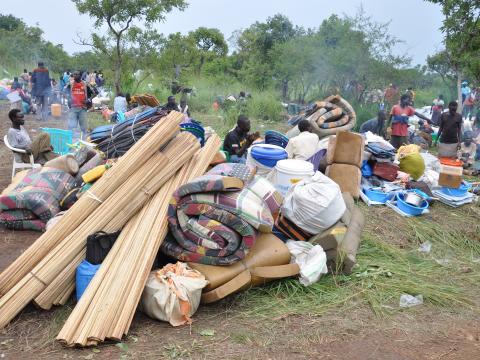
25-year-old Kiden Annet is a mother of six and currently expecting her seventh. She and her family previously lived in Central Equatorial, South Sudan. They fled to Uganda to seek refuge following the recent wave of unrest in Africa's youngest nation which left hundreds of homesteads burnt to ashes. But life in Uganda hasn’t been any better yet.
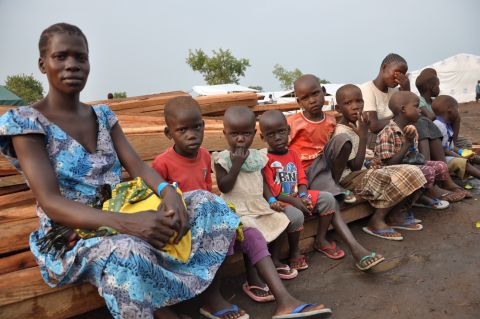
For close to one week since the family was transferred to zone one in Bidi Bidi settlement, Kiden and her six children have been living in the open. The family has not been able to erect a make shift house at the new refugee settlement in Yumbe district.
‘’My husband is still weak and hasn’t been able to put up a structure for us. When it rains, everything gets wet. We have nowhere to seek shelter. We sometimes use the tarpaulin and blankets to cover ourselves. I am pregnant and I don’t know how am going to go through this. It is very hard and scary sleeping out here in the open at night’’ Kiden narrates.
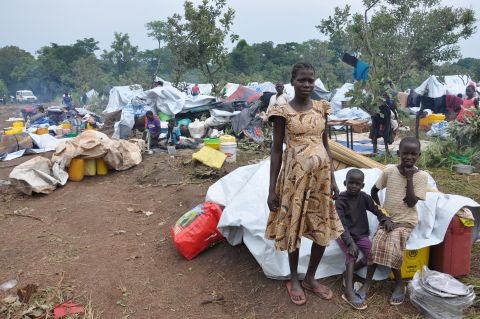
Kiden is just one of hundreds of refugees living in the open in the new Bididbidi refugee settlement, where more than 15,000 refugees have been transferred from refugee settlements in Adjumani. Upon arrival, refugees are provided with temporary accommodation and hot meals at the reception centre, and thereafter each household is moved to the refugee settlements, given a plot of land and provided with basic items to start a new life.
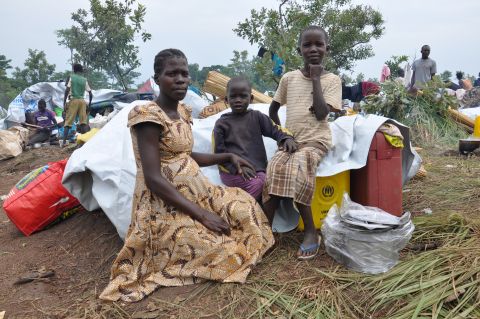
Refugees are also provided with tarpaulins, building poles, nails among other items by UNHCR to facilitate the process of setting up a make-shift house. This is when the grim reality hits; the fact that one has to put up a make shift home or else sleep in the open. Exception is however made for those refugees categorised as persons with special needs. These are especially the elderly, physically disabled, unaccompanied children or those with chronic ailments.
60% of the refugees in the camp are women and children, who are unable to raise temporary structures to live in. For these, it takes the mercy of other refugees in order to get a temporary home.
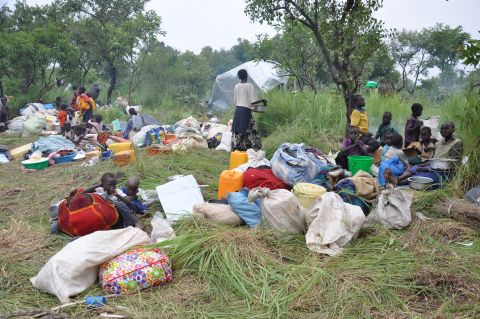
“Everyone is busy putting up a shelter for their family, some young men come and help people like me, but that happens after a while. At night we all cover ourselves with the UN blankets and then put the tarpaulin on top to keep water from penetrating through’’ Kiden says.
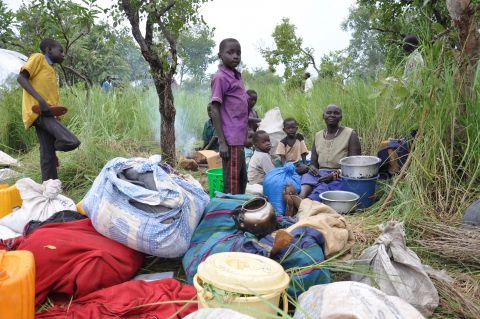
This situation has been worsened by the current wet season, making it hard for the refugees to cope with the new life. Issues of poor sanitation as a result of inadequate latrines may soon crop up exposing hundreds of refugees to risks of contracting cholera. But Kiden is convinced that despite the harsh life now, she would rather be here than go back to Central Equatorial;
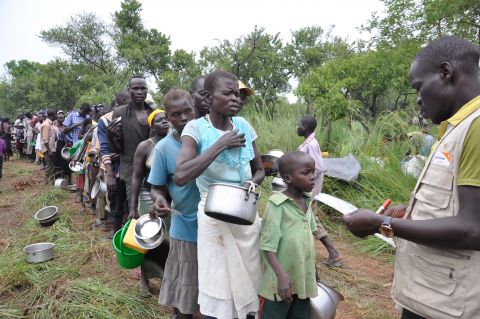
‘’Some of my neighbors’ children were raped by the fighters, and we saw these things happen. I cannot go back, at least not now’’ Kiden adds.
Uganda continues to receive more than 3000 South Sudanese refugees daily through various entry points. On some days the number has shot up to 5000 persons
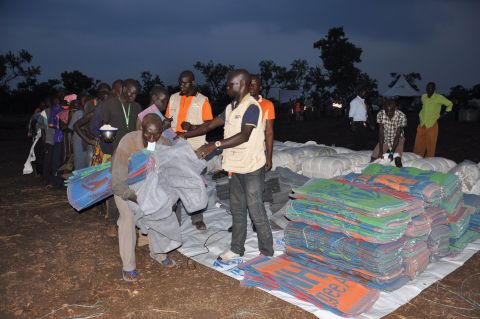
World Vision is under the bidibidi refugee response working with WFP, UNHCR and UNICEF to; prepare and provide hot meals to all new arrivals, to distribute general food and non-food items to all the refugees in the settlements plus rolling out an intergrated protection programme targeting children and unaccompanied minors.